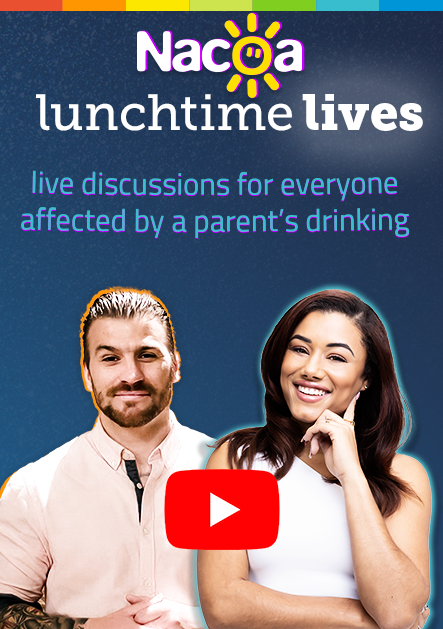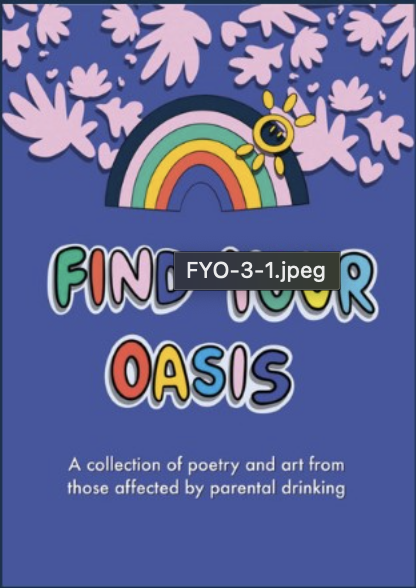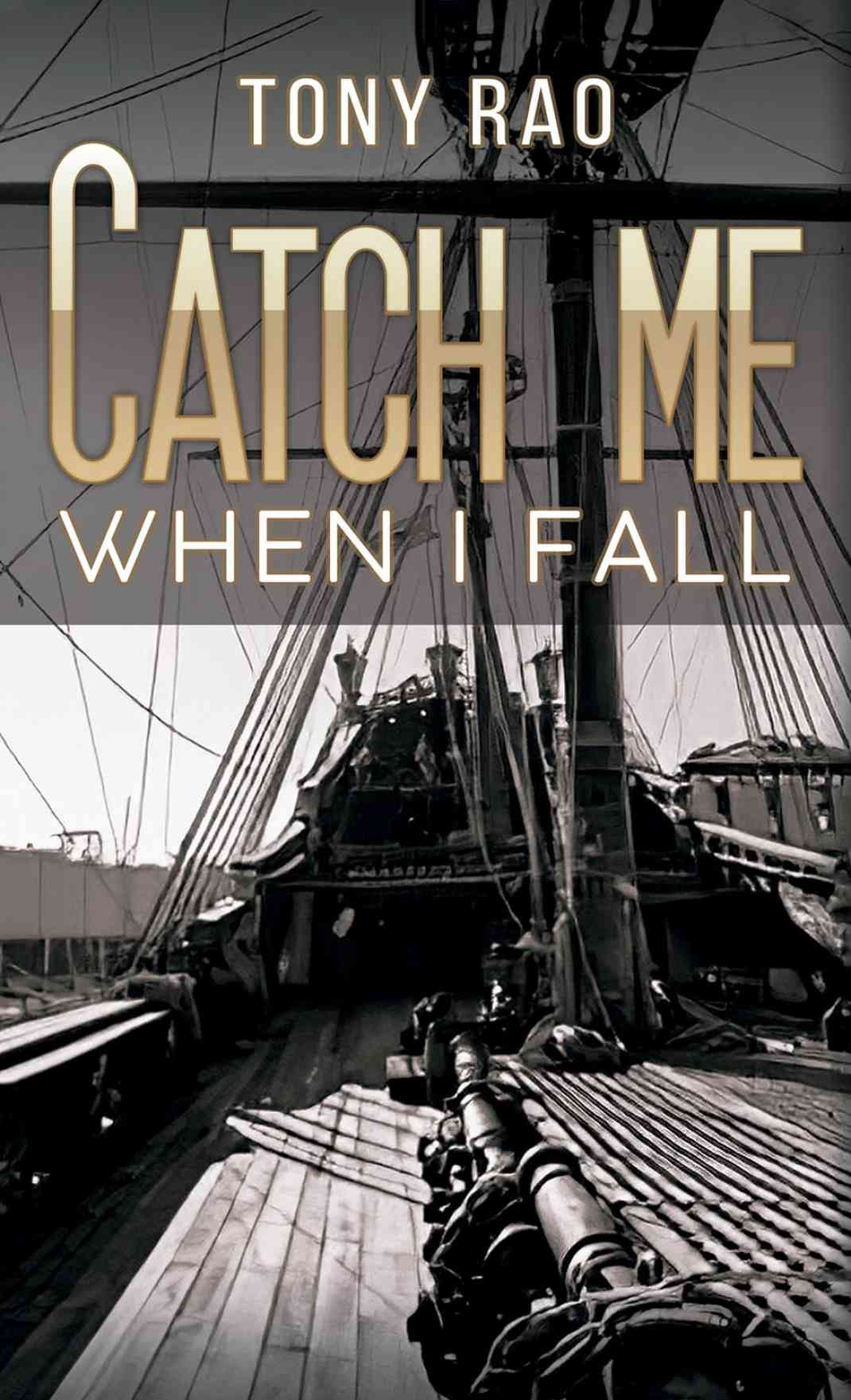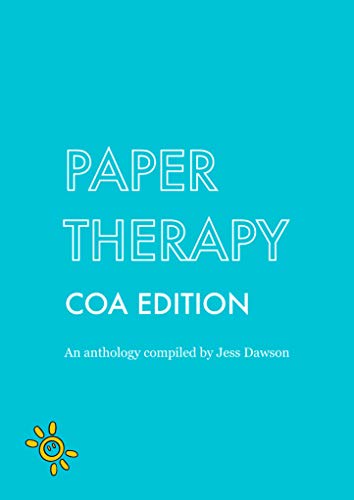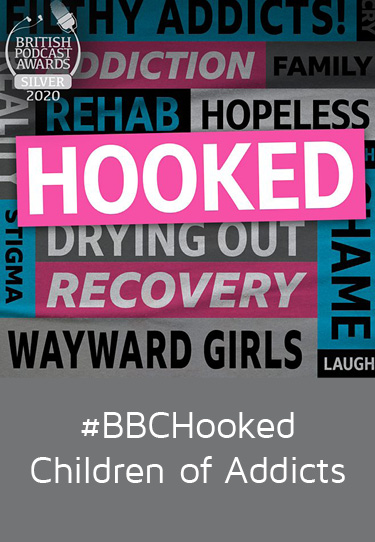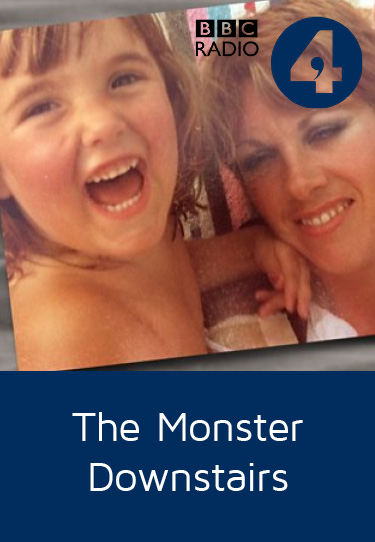

Coming to terms with my mother’s alcoholism took me on a rather circuitous route involving my own deep struggles with the substance, over many years. It was almost as if, despite vowing I would not end up like her, I had to experience it to understand it.
I struggled for years with my drinking and was a binge drinker. Basically if I picked up a drink, I never knew how things would end up and often the results frightened me so much it was days before I did it again. Other times I was fine. The fine times, plus the days I didn’t drink, convinced me for many years, I didn’t have a problem.
I should have known that wasn’t the case as for many years my mother didn’t drink everyday and she held down a job and brought up three children. But she died of alcoholism at the age of forty-eight. I occasionally made connections about what happened to her and what was happening to me in my own life but not often enough and not clearly enough.
It was only through finding the National Association of Children of Alcoholics based in Bristol, on the internet, and getting finding out about the work they do with children today, that I had a clearer sense of how my mothers drinking had affected me in my own life.
As a child I always knew something in my house was wrong. I had an anxious feeling most of the time and never really questioned it. After the age of about ten, I seemed to rarely go to other peoples’ homes so I couldn’t compare our family to others. Indeed I never even thought of doing that until much later on. I identified with my mother so much, if she was hurting, I was hurting and it was “normal” for us.
When I was ten, we moved to Scotland. Before that things seemed okay. We had friends, we lived in a supportive community. My mother was at home looking after me and my two brothers. We lived in a comfortable home and lacked little materially.
We moved up to Scotland as my dad had got a new and better job. My mother left friends and a life behind and we moved into a caravan while our new house was being built. For the first time, my father was away for much of the week and it is clear in my mind that the drinking started then. She drank before but it was in Scotland it began to impact on us. She became moody and unpredictable. She would buy sherry and wine and drink while we were at school. This carried on for years. I could tell as soon as I saw her when I got home, if she’d been drinking. Her eyes seemed all over her face and she wore a kind of hang dog expression.
I would be anxious to avoid arguments and would try and protect my brothers from her anger. With the first couple of drinks her mood would lift, but then I think she sensed I was anxious and she’d be moody and grumpy. She’d know I was disappointed in her for drinking and would implore me not to look at her “like that”.
She’d get angry, sometimes smash things. She would sit and smoke and do a crossword and drink until she’d be slumped over the table. Sometimes she would pass out on the floor and I would lie awake worrying that we would get burgled and there was only me who could phone the police, etc. My mind would go into overdrive with anxiety. Sometimes I’d try to get her to bed. I’d try to get the boys to bed.
Mum would often drink and dial. I could tell people would first be patient and then try and get her off the phone. She was unhappy and lonely and so full of her own pain that she found it hard to be open to other people’s problems.
A favourite number for her to dial was my dad’s brother and wife in Canada. They were handily awake at three in the morning, our time. Perhaps they were the only ones she could get to pick up the phone! Once, hearing her pouring her heart out at the time, I went into her room crying. She asked me what was wrong and I told her I was worried she was an alcoholic. She hit me hard across the head and shouted, you don’t know what that word means. It was the last time I tried to talk to her about her drinking until I was grown up and even then I daren’t do it in a direct and open way.
My mother found me a threat because she knew I knew. My dad avoided all uncomfortable ideas and worries. He was as much in denial about the problem as my mother was. We learnt not to talk about any problem. Sometimes when things weren’t so bad, it made things go away for a bit. And of course we loved her and wanted to protect her. She started to get fat and mean looking. I was angry sometimes and felt she didn’t even try to stop it. Every time I watched her buy alcohol my heart sank. Each time I withdrew a bit more until I was able to disconnect myself from the world around me and withdraw into my private safe world. I still go there sometimes.
If anyone saw her drunk I was so ashamed. It was painful and humiliating to look at her through someone else’s eyes so we rarely had friends back home. As a teenager, that made me feel different and isolated. I was lonely. I wanted someone (my dad firstly) to save us. I wish I had felt that talking to someone was an option. It never even occurred to me.
My Canadian aunt recently told me she watched us all knowing how hard it was for us and wishing she could do something. It would have helped so much to know that at the time. The worst part was feeling alone and that I could ask no one for help. I used to dream about talking to someone and the relief that would bring but felt disloyal for even having the thought.
Making a conscious decision to drink uncontrollably was never on my to do list. Firstly, as a teenager, my mother grew to dread my disapproving stare when she began drinking. Behind the stare was fear and anxiety, as I never knew how the night would end. I found not only did her mood improve if I joined her in a drink, then I would feel mature and however the night ended didn’t matter because I wouldn’t remember either.
One of the things I learnt later on about adult children of alcoholics is that you lose perspective. You start to think you are going crazy when the things you remember and are distressed about, are never mentioned (often because the alcoholic has blacked out). You start to wonder if you are going crazy as so many bizarre things happen the night before but the next day are never mentioned.
That lack of realistic perceptions of events are magnified if you yourself start drinking alcoholically. You don’t remember what other people tell you you did and find it uncomfortable to mention, so after a while you are not sure what was real and what wasn’t. So in the end your perception of everyday events becomes a bit distorted and skewed.
Loyalty and love was what got me drinking with her. Mum would offer me wine and cigarettes so that my disapproval didn’t make her feel guilty about her drinking. And I wanted to stop her pain and mine. It worked. I knew that being sober at the end of an evening with mum was painful. If I was drunk too it was even quite fun. We would put on records and sing until the early hours. We even felt close sometimes. I don’t know whether I learnt to drink with her, or whether the genetic predisposition was there and just needed to come out.
I spent years knowing my drinking wasn’t normal. On the surface I was normal and went to University, taught in Spain and had many good times with alcohol. But it was always bittersweet. For every good experience there was a frightening one when I would excuse my lack of control with the stress I was theoretically under. In reality, my life was stressful in part because of decisions I had made.
It was a hot day in Clapham when the real acceptance that I could never drink again came. Before this day I was zig zagging really, one day I would be sure I would never drink again, but it would fade, sooner or later. I would feel justified in having just a couple, that never remained just a couple. I knew stopping for a committed period (forever!), would change things. But after a birthday party in Clapham I was ready for that change. In fact I was restless all summer, willing something to happen to make it all come to a head.
It was my brother in law’s 40th party. He was having it with his partner in a Spanish restaurant in Clapham. It was no accident that it was a family party. These events are rife with emotion for me, with the ghosts of past family gatherings lingering in my consciousness, just aching to be obliterated! Significantly, it was in a Spanish restaurant where I had lived for three years. Both factors had long associations with alcohol.
A blazing hot day, we walked from the station to the restaurant with my sister in law. I had my husband and one year old son with me. I wore an irritated yet reckless state of mind that day that had come to be synonymous with out of control behaviour in my life. So, as soon as we arrived, Cava greeted us at the door and I only had a moment’s hesitation about taking a glass.
My husband looked anxious. He knew it was dangerous, but he tried to ignore it. I guzzled Cava and felt alive, talking Spanish to some of the guests and the waiters, I knew things were out of control almost straightaway, but the rational side of my head had lost. Almost straight from the beginning it was lost.
By the speeches I could not focus on anyone else. I was inside my own head and feeling numb, but needing more and more of something, cigarette, affection, affirmation. That terrible need came back and I kept having to drink more but it kind of felt that no amount of alcohol would be enough.
There was never a time when I was in that state of mind that I felt I had had enough. Then I sat on my brother in law’s lap. A surprise for my husband because he has four bothers and it was the one I like the least! Then I collapsed. Lying at the feet of my in-laws, my husband’s family was all stepping over me, looking at me with concern and, most probably, distaste. I was so sick, all over the restaurant. When it was time to go no one knew what to do. We were supposed to get a train home to Brighton. I wasn’t capable of sitting up. My brother in law took us back to his house. The party was to continue there. We would have to stay; my husband had our son and had no way of getting him home with me completely incapacitated.
I wailed for my mother. I was crying for her uncontrollably. I have no recollection of this, I totally blacked out. All I know is I was totally distraught, somewhere in me I knew I was lost and I just wanted the mother who was never there for me in life. I wanted her but she was dead. Dead because of the very thing that would destroy me and my children if I didn’t sort out this problem once and for all.
They undressed me and put my son and I to bed. My husband was quite low and bewildered I think. He was approached by a Puerto Rican woman at the party, with whom I had had lengthy conversations in Spanish, in the earlier part of the evening. She was compassionate and told him that in her opinion, his wife was an alcoholic. She knew from experience because she was one also. She explained that other people would often not understand the lack of control implicit in that problem and that she would be able to possibly help by talking to me when I felt better and gave him her card.
The next morning I did feel worse than many other hungover occasions. Both physically and due to the humiliation I felt when meeting my brother in law, his partner and his sister, all of whom had been so concerned for me the night before. They reminisced about the evening, which they had felt was so special, and of course it was for them as there had been speeches from various people important in my brother in law’s life and they really skirted around what had happened to me and were very kind. I felt so low and that I had been an embarrassment.
In fact, the low point carried on for weeks. I felt so anxious all of the time that it would happen again and I would have no way of controlling it. I kept wondering what the family thought of it and I would wake up in the middle of the night reliving different parts of the evening. I felt totally exposed.
It was like I knew that any illusion of control that I still held onto, even after years of struggling with the problem, was gone. I couldn’t ever drink again and the future scared me.
I relived the night for a few weeks and became anxious much of the time and couldn’t sleep. I knew it would happen again if I didn’t do something different. Three years previously I had gone to AA and found the experience profoundly disturbing. I thought of my mother over and over again, listening to very familiar stories and knew that I had to deal with my feelings about her as well and the two problems were inextricably connected.
I went to the doctor’s about not sleeping, hoping she would give me some sleeping tablets as I wouldn’t be able to work if things carried on like this, but while there I cried, told her about the drinking and that I was scared of ending up like my mother. She was fantastic and told me that she had once watched a woman patient drink herself to death and had no intention of letting that happen again and referred me to the Psychological services. That was the best thing that could have happened to me, as I began to learn to cope without drinking and talk a bit about the shame that had kept me closed for so long.
I came to terms with the relationship I had had with my mother and learned to see her as a human being and not just in terms of her alcohol misuse. She died when I was in my early twenties. It was two years after my dad had left her, of cirrhosis of the liver. I had spent years being angry with her and some years feeling glad she was dead. I hadn’t considered how much I loved her, the person she was when sober and it took me to see her in another way before I could mourn her properly and see her as a damaged but essentially good and valuable human being.
Through learning about alcohol in order to try and understand my own abuse of alcohol, over the years I have gradually come to understand why it was so hard for my mother to stop. She couldn’t cope in this world without it.
I also began to understand that there are so many other people who shared the experience of growing up with an alcoholic but it is difficult to find people to talk to about it. There is such a taboo about alcohol in our culture and the problematical side of its use is often glossed over.
On the internet, I found many American self-help groups, mainly affiliated with AA but little in our own country. I found NACOA on the internet and was immensely relieved that such an organisation exists to help children who are growing up with the perplexing, potentially isolating problem, now have a place to turn. Their help line provides support for thousands of callers a week. It also gives adult children of alcoholics a place to turn a difficult experience around and influence the next generation positively.
Providing a forum to listen and not have their family judged is profoundly healing, especially when the listener is someone that understands alcoholism and the feelings it provokes in family members. I feel that the taboo nature of alcoholism and the “don’t talk” rule families of alcoholics adhere to perpetuate the problem.
For me, as for thousands of children growing up in alcoholic homes today, just to hear about the disease in a non-judgmental way and to be heard can end years of isolation and be profoundly healing. I feel strongly that all children need to know about NACOA and that the public in general need to learn about alcoholism and the impact it has on the vulnerable growing up in it’s midst.









































































